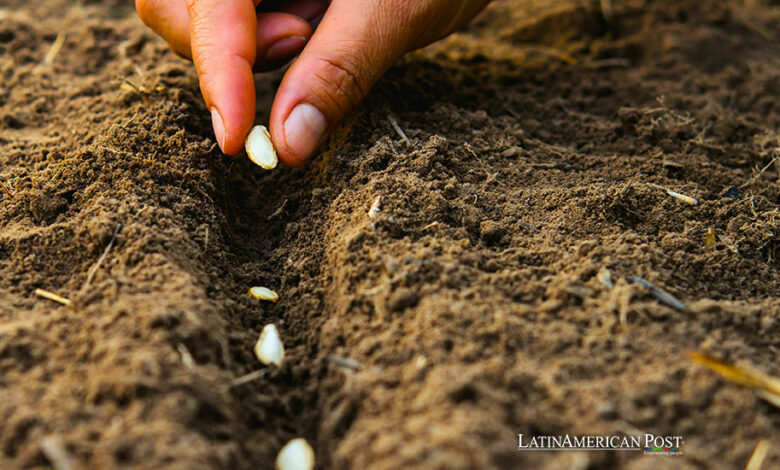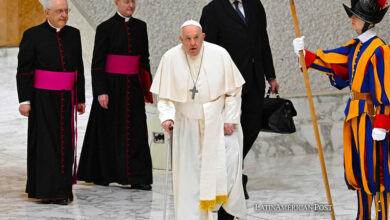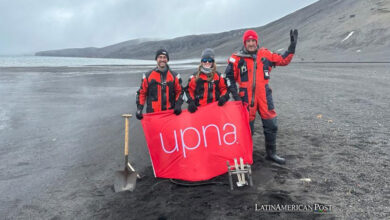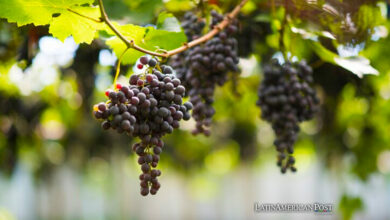Advancing Agri-Tech: Venezuela’s Strategic Seed Conservation Initiative

Venezuela’s Ministry of Science and Technology spearheads an ambitious project to rescue, conserve, and multiply seeds with significant nutritional and medicinal values, driving toward greater food sovereignty.
In a recent announcement that underscores a broader national push toward self-sufficiency and health promotion, Venezuela’s Minister of Science and Technology, Gabriela Jiménez, revealed the country’s ongoing efforts in a critical area: the development of a project dedicated to the “rescue, conservation, and multiplication” of seeds deemed crucial for their nutritional and medicinal properties. This initiative is not just about agriculture; it’s a robust attempt to reclaim a part of Venezuela’s cultural and botanical heritage, integrating traditional knowledge with modern science to foster a sustainable future.
Venezuela’s Agro-Food Sovereignty Initiative
Minister Jiménez, addressing the media, emphasized that this project is a core element of Venezuela’s national scientific agenda, which prioritizes agro-food sovereignty. “From the national scientific agenda, we are developing projects aimed at the sovereignty of our agri-food systems, one of which involves the rescue, conservation, and multiplication of our seeds of nutritional and medicinal interest,” Jiménez stated.
The process involves a meticulous study of these seeds, followed by their multiplication and reintroduction into local communities. This initiative not only revitalizes native plant species but also bolsters local food resources and empowers communities by involving them directly in conservation efforts. The project promotes the formation of “local family committees” and encourages the “exchange of collective knowledge and the recognition of these fruits, plants, and foods” among Venezuelans.
One of the intriguing aspects of this project is its deep roots in ethnobotanical culture, which the Minister described as a “vital element of cultural heritage.” This approach acknowledges the intrinsic value of indigenous and local knowledge about plant species that has been passed down through generations. These practices are crucial not only for their cultural significance but also for their potential contributions to modern diets and health regimens.
Promoting Health and Nutrition
The importance of this initiative extends beyond cultural preservation. By reintroducing these native species into the Venezuelan diet, the project aims to enhance nutritional intake and promote healthier eating practices across the population. This is particularly significant in a country facing challenges such as food scarcity and economic instability, which have profoundly impacted public health and nutrition.
Further bolstering these efforts, earlier in April, Venezuela and the North Caucasus Federal University in Russia signed a memorandum of understanding to expand cooperation in agricultural training and research. This partnership highlights the international dimension of Venezuela’s agricultural strategy, seeking to leverage external expertise and ensure the transfer of suitable technologies. These technologies are crucial for soil protection, seed conservation, and the management of pests and insects, thereby supporting the broader goal of enhancing the Venezuelan diet.
Minister Jiménez has pointed out that such technological transfers are necessary “to ensure more healthy food for the Venezuelan people and promote health.” This statement reflects a holistic view of agriculture as interconnected with the populace’s well-being, where food security is directly linked to national health outcomes.
In a broader context, Venezuela’s focus on seed conservation and multiplication mirrors a growing trend in Latin America, where countries increasingly turn to traditional crops and methods to solve contemporary challenges in agriculture and health. Countries like Peru, focusing on ancient grains like quinoa, and Mexico, with its preservation of heirloom corn varieties, showcase a regional pivot back to agronomic roots, prioritizing sustainability and health over industrial yield.
The project also aligns with global movements advocating for food sovereignty, emphasizing peoples’ right to healthy and culturally appropriate food produced through ecologically sound and sustainable methods. By focusing on seeds with historical and cultural significance, Venezuela addresses immediate dietary needs and contributes to a global dialogue on biodiversity and ecological conservation.
A Model for Addressing Global Challenges
As this initiative progresses, it will likely serve as a significant case study of how integrating traditional agricultural practices with modern scientific research can help address some of the most pressing challenges of our time, including food security, health promotion, and sustainable development. The success of such projects could inspire similar initiatives across the globe, particularly in regions where biodiversity is rich but underutilized due to reliance on a narrow range of crops.
Also read: Venezuela’s Electoral Saga Escalates as Maduro Seeks Third Term
Venezuela’s proactive approach to seed conservation and multiplication is more than a scientific endeavor; it’s a reclamation of heritage, a health initiative, and a step towards ecological and nutritional autonomy. As the world faces increasing challenges related to food and health, Venezuela’s journey may offer valuable insights into the power of local knowledge and the potential for communities to shape their health destinies through the wise management of natural resources.





